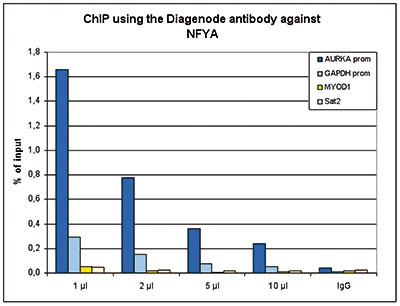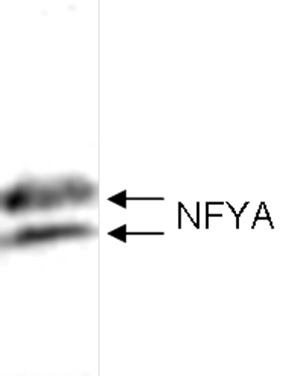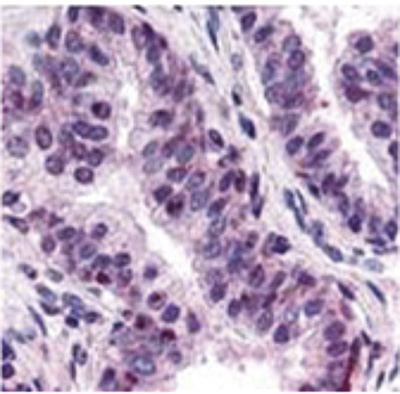NFYA (UniProt/Swiss-Prot entry P23511) is one of the 3 subunits of the ubiquitous transcription factor NFY. All three subunits A, B and C are required to form a NFY-DNA complex. Depending on the cofactors involved, NFY can function both as an activator or a repressor, The NFYA subunit is responsible for the sequence specific interactions of the complex, suggesting a role as regulatory subunit. NFYA regulates the transcription of the core clock component ARNTL/BMAL1.








